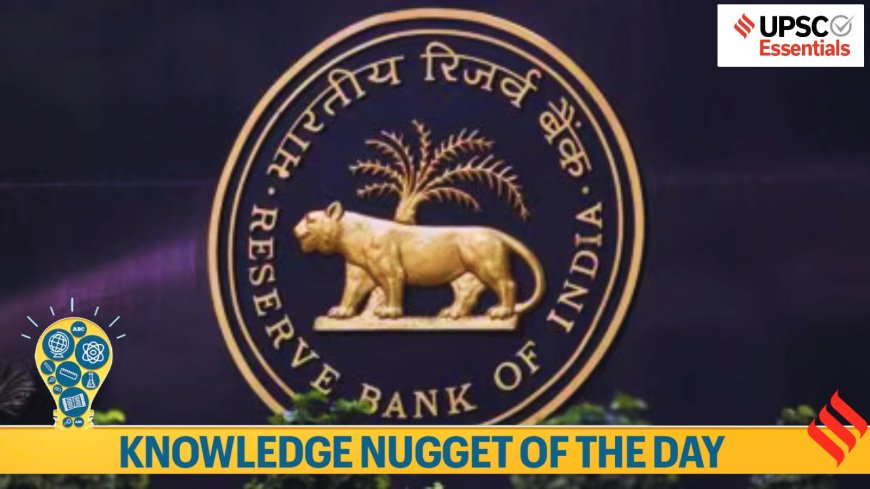Knowledge Nugget | RBI’s surplus transfer to govt: All you need to know for UPSC Exam

Knowledge Nugget | RBI’s Surplus Transfer to Government: All You Need to Know for UPSC Exam
Breaking News, Daily Updates & Exclusive Stories - asarkari
The Reserve Bank of India (RBI) has made headlines recently with its decision to transfer a significant surplus to the government, a topic of utmost importance for UPSC aspirants. This article dives deep into the implications of this surplus transfer, providing students with vital insights that can enhance their understanding of economic policies critical for their upcoming examinations.
Understanding the RBI Surplus Transfer
The RBI's surplus transfer is a financial mechanism by which the central bank allocates its profits to the government. This transfer is often used to support the government's budgetary needs, providing crucial funds for socio-economic projects and fiscal management. It is essential for UPSC candidates to grasp the nuances of this process, as it highlights the strategic role of the RBI in maintaining economic stability in India.
The Recent Surplus Transfer: Key Highlights
In its latest financial review, the RBI announced a surplus transfer of INR 99,122 crore to the central government. This amount is vital amidst ongoing economic challenges, as it accounts for nearly 10% of the government's budget, potentially aiding in infrastructure development, healthcare projects, and educational initiatives.
This transfer marks an increase from previous years, and students need to look at both the reasons for this rise and its implications. The RBI primarily generates this surplus from its monetary policy operations, including interest margins, foreign exchange fluctuations, and investments in government securities.
Implications for Governance and Policy
The transfer of surplus can significantly influence government spending and policymaking. For instance, it plays a pivotal role in determining the fiscal deficit, a crucial metric monitored by various stakeholders, including international financial institutions. Moreover, this surplus can support the government's initiatives aimed at reviving economic growth, particularly in a challenging global economic environment.
Students preparing for the UPSC exam should also focus on how this surplus transfer relates to the broader economic context of inflation control and growth stabilization. Understanding these connections can provide aspirants with a more coherent perspective on India's economic framework.
Impact on Monetary Policy
It’s important to note that while the surplus transfer aids the government, it must be executed cautiously to ensure that the RBI maintains sufficient reserves. This balance is vital for ensuring the bank's ability to implement effective monetary policies aimed at managing inflation, interest rates, and currency stability.
Understanding the dynamics between the RBI and the central government can empower UPSC candidates with knowledge relevant to current affairs and economic policies that frequently appear in the examination.
Conclusion: The Importance of Being Informed
For UPSC aspirants, staying updated on financial decisions like the RBI’s surplus transfer is crucial. It reflects not only the health of the Indian economy but also the synergy between monetary policy and fiscal policy. As candidates prepare for their exams, they should be sure to integrate this understanding into their broader economic knowledge base.
By keeping a keen eye on such developments, candidates will be better positioned to answer both theoretical and practical questions that may arise in their examinations. For continuous updates on important topics, remember to visit asarkari.com.
Keywords:
RBI surplus transfer, UPSC exam, Indian economy, monetary policy, fiscal policy, economic stability, RBI profits, financial news, government budgetWhat's Your Reaction?
 Like
0
Like
0
 Dislike
0
Dislike
0
 Love
0
Love
0
 Funny
0
Funny
0
 Angry
0
Angry
0
 Sad
0
Sad
0
 Wow
0
Wow
0








































